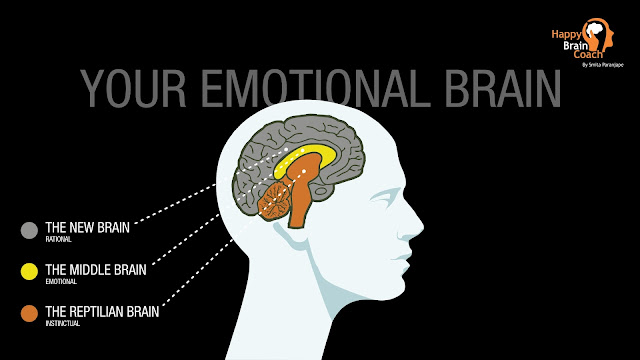Emotions, one of the most natural attributes of human beings. We feel it every day on a diverse scale of variety and intensity.
But have you ever wondered why do we feel emotions?
What role do they play?
Emotions are necessary to generate the required
behaviour in a situation.
For example,
Let’s say that you are walking down the street with
your friend. A cyclist is coming from the opposite direction and he is about to
run into your friend.
A sudden emotion of fear will jerk your hand to pull
your friend closer and out of the cyclist’s way.
Emotions also help us to communicate with others and
ourselves.
This is one of reason why we say that laughter is
contagious. Without using any words you communicate your joy with people around
you.
Just through emotions of joy.
Now, there are times when these emotions get the
worst of you. The time when a situation makes you angry but you cannot afford
being angry.
For example, your company has missed a shipment
because of an error on your side.
The immediate emotion is of anger, but if you start
getting angry and throwing things around you might lose the next shipment due
in 20 minutes.
So, how do you regulate your emotions?
How do you control your emotions, rather than
letting the emotions control you?
The answer to this is Emotional Regulation
---------------------------------------------------------------------------------------------------------
The world renowned psychologist, James Gross Ph.D.
defines emotional regulation as follows, ‘the processes by which individuals
influence which emotions they have, when they have them, and how they
experience and express their emotions’.
This can be done in a couple of simple steps, at institutes
like Happy Brain Coach. The experts will help you to
a.) Find
your emotions
For example, let’s say a person who is in a leading position in a company has experienced a personal loss. It has also started affecting his work and incurred some loses in the company. This is a complex situation during which the person cannot pinpoint the emotions that he is feeling. Hence it first important to help the person to find the emotions and then help him regulate it with the next step.
b.) Help you regulate it with exercises. One of
which is the mindful exercise.
Mindfulness is the ability to know
what's happening in your head at all times. Once you are aware of it, you can
take charge and tell your brain what to think. The easiest way to do it is the
5 senses loop technique.
Emotional regulation is one of the most powerful
traits of highly successful people. With the right guidance from the right
experts you can regulate your emotions and channel them into positive results
quicker than you think.













